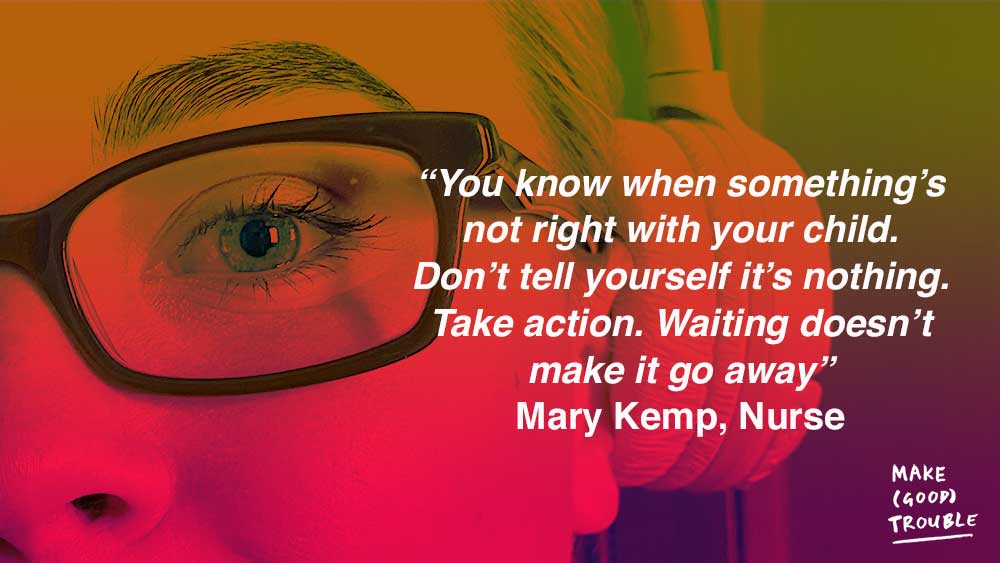Happy 2024!
This round up is all about our brand new podcast series of Raising Teens which is currently being broadcast on BBC Radio Sussex and Surrey every Friday at 7pm – with a handy catch up on BBC Sounds. We’re super proud of this series which brings together amazing interviews with young people by our young reporter Lola Ray, brilliant expert guests and really important subjects in teen mental health.
Each episode brings you first-hand accounts from young people, and a panel of experts in the studio talking with new Raising Teens host Clare Cowan. They discuss the issues and how best to provide help and support. Each episode is full of fascinating conversation and great practical tips and advice. The series is supported by NHS Sussex.
Here’s a round up of the episodes so far, so you can dive straight into what interests you most. Each summary includes a link to listen as well as to sources of support and advice. We’d love to hear what you think of the series – you can leave a comment on our social media accounts or simply reply to this email.
Episode 1: Getting mental health support
This episode explores how parents & carers can navigate the system to find the right services and resources for their child. We know that many teenagers are struggling to access mental health support with average waiting lists rising in the last two years and over half of those on a waiting list reporting that their mental health had deteriorated (Young Minds). The pandemic and cost of living crisis have had an impact on what was already a growing crisis. We also talk to young people with neurodivergent conditions like ADHD and autism who’ve faced long waits to get a diagnosis, let alone help.
🎧 Listen to Raising Teens: Getting mental health support on BBC Sounds
👋 More information and links to support about getting mental health support
Episode 2: Supporting Adolescent trauma
When a child experiences trauma in their early years it can result in behaviours which can cause distress – to the child, their families and communities. They can include self-harm, risk-taking and being vulnerable to criminal exploitation. This episode explores how we can intervene early to help prevent family breakdowns and escalation, and how parents, the wider family, and friends can provide support.
🎧 Listen on BBC Sounds – Raising Teens: Supporting adolescent trauma
👋 More information and links to support for adolescent trauma
Episode 3: Treating eating disorders
In this episode, we explore eating disorders and how parents and carers can understand what’s happening to their teens and find the right support. We look at what‘s behind the sharp rise in the number of young people receiving treatment for eating disorders – a rise of almost two-thirds since before the pandemic. We talk about how services can keep up with the need for treatment and what we should we be doing as a society to help our young people who may be struggling.
🎧 Listen to Raising Teens: Treating eating disorders on BBC Sounds
👋 More information and links to support for treating eating disorders
Episode 4: Becoming an adult
The journey from teen to adult can be complex and hard to navigate without support and guidance. The teenage brain, changes in hormones, and upheavals in a young person’s personal life can be overwhelming, confusing and challenging. Almost half of teens have lowered expectations for their future because of the rising cost of living, according to the latest Prince’s Trust Youth Index. In this episode, we look into how we can support young people to make positive decisions about their future and best prepare to navigate the challenges of life.
🎧 Listen to Raising Teens: Becoming an adult on BBC Sounds
👋 More information and links to support for young people around becoming an adult
🎙️ Still to come on Raising Teens!
We have episodes on Neurodiversity – this Friday! – and Support in schools. We’ll cover those in next month’s newsletter.
🎧 Plus you can catch up with previous series of Raising Teens – covering everything from social media and loneliness to county lines and the teenage brain…
👋 Do share this blog with anyone you think might find it useful. Thanks!
We hope you enjoy Make (Good) News. If you have any suggestions or news you think we should cover next month, send us a line!
The Make (Good) Trouble team x

